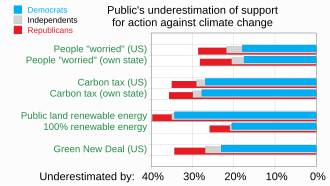vs The world of opinion polls has been a stalwart research tool for decades. Today, public polling is more powerful than ever as an instrument to measure collective sentiment and shape real-world decisions. Here we explore the role of public polls across a variety of topics.
Polling 101
Public opinion polls are structured surveys used to gauge the attitudes and opinions of a population on any given topic. Through data collected from a sample group, pollsters then make conclusions and overviews that allow them to extrapolate their findings to the larger population. Different types of polls can be conducted – from questions posed to passersby in the street, to online surveys and telephone interviews.

What Kinds of Questions Are Asked?
Questions asked in public opinion polls can range widely in terms of topic. Popular topics include politics, economics, social issues and consumer behavior. These polls can also help measure the public’s opinion of something such as a political candidate or event. Many polls focus on how likely people are to take certain actions, such as voting in an upcoming election or purchasing goods.
Why Are They Used?
The main reason that public opinion polls are conducted is to provide insight and inform decision-making. Polls can help gauge public sentiment on various issues in order to better understand what people are thinking. This is particularly true when it comes to political issues and campaigns. By gauging public opinion through polls, politicians and organizations can better understand what policies and platforms will resonate with the public they serve.
Present-Day Significance
In present day, public opinion polls have become even more important. With a wealth of resources available, pollsters can now collect data from many different sources and methods, letting them get a closer look at public opinion than ever before. Social media sites such as Twitter, Facebook, and Instagram can also provide valuable data for public opinion polls, offering a way to measure public opinion in near-real time.
The Benefits and Challenges
Despite their usefulness, public opinion polls come with their own set of challenges and drawbacks. For example, when conducting polls over the phone or online, pollsters must ensure that the sample size is representative of the overall population being polled. Additionally, collecting data in a timely manner can be difficult due to the length of some polls. However, if done correctly, public opinion polls can provide immense value, allowing organizations and political figures to make well-informed decisions based on data rather than assumptions.
Managing Public Opinion
So what does this mean for those looking to influence public opinion? To begin with, understanding public sentiment is key, and public opinion polls can be instrumental in providing this knowledge. Furthermore, using public opinion polls to support a particular narrative can be effective, as the data can be leveraged to support one’s position. However, care must be taken to ensure that the polls are conducted ethically and with integrity in order to gain an accurate reflection of public opinion.
Conclusion
In summary, public opinion polls are an invaluable resource for organizations, politicians, and individuals alike. By providing an up-to-date snapshot of collective sentiment, these polls offer a unique avenue for insight into a wide range of topics, making them an essential tool in decision-making. As long as they are conducted ethically, public opinion polls can be a powerful tool for businesses and politicians alike.

